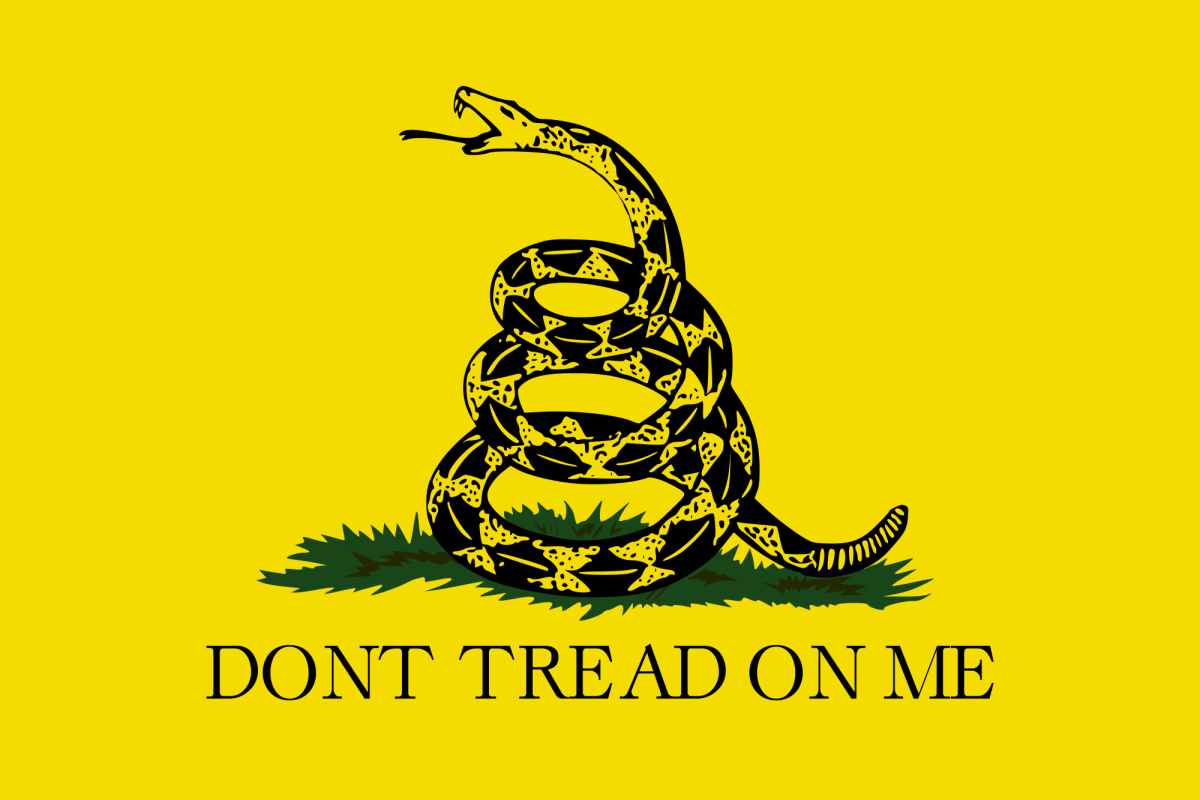Getting wise to the gay marriage debate con

The debate over gay marriage is all over the media, and it's not what you might think. Whether you're for or against gay marriage, the debate says more about how misinformed Americans are about how their government works - and about what the mainstream media will and won't disclose - than it does about the morals or ethics of the issue.
Politicians have been using issues that tug at our emotional side - like gay marriage, abortion, or when to terminate life - for decades in order to obscure the political issue among a frenzy of impassioned public pleas. They embed critical political arguments in issues, re-frame them as something they're not really about (like whether the government should recognize gay marriage), and use the stirred-up public frenzy on the issue (on both sides, mind you) to enact new legislation that sets new and subtly powerful legal precedents. The whole point of all this for the politicians is to set those new precedents into legislation, because they purport to expand the powers and authorities of the government. And the gay marriage debate is an excellent example of this.
It's like the old saw about being in court testifying on the witness stand, and having the attorney for the opposing side ask you, "Have you stopped beating your wife?" If you answer Yes, you've just admitted to having beat her at some point in the past. And if you answer No, you're admitting to continuing to beat her. This is because the attorney's question has created a false premise, and you haven't taken the opportunity to shoot it down. To shoot it down you'd have to stick with the truth, rather than accept any of the bogus options (Yes or No) his question had given you. But the American public don't actively stick up for the truth, and we all know the old adage - If you don't stand for something, you'll fall for anything.
In this case, the question is, "Should the federal government give its citizens permission to marry same-sex partners?" The debate is over the issuing of marriage licenses, with all of the federally-granted privileges that come along with it such as tax deductions and health-care benefits. But licenses are only granted when someone is trying to do what would otherwise be against the law. For example, a pyrotechnics license, a hypnotherapy license, or a driver's license. In the federal U.S., you can't legally practice those things without a license. And the same is true with marriage licenses. So why do federal citizens need permission from their government to get married at all?
Even straight marriages didn't require this kind of governmental permission originally. It was only in 1839, when a rich South Carolina plantation owner sought permission to marry his mulatto slave, that the first marriage license was granted.
MARRIAGE LICENSE. A license or permission granted by public authority to persons who intend to intermarry,..
INTERMARRIAGE. In the popular sense, this term denotes the contracting of a marriage relation between two persons considered as members of different nations, tribes, families, etc...
Because intermarriage would otherwise have been against the law, the plantation owner had to obtain a special license in order to do it. Since then marriage licenses have slowly crept into common usage, and are now believed to be a requirement for marriage, straight or otherwise. They aren't - people had been getting married in the Union before 1839 just fine without obtaining a license - permission - to do it. This is an excellent indicator of how the federal government manages to get itself more and more involved in things it wasn't created with the power or authority to control.
Consider an average straight marriage for a moment. It's self-evident that it is the Creator who joins them together, with a priest as an intermediary. The government doesn't enter into it, because the Creator is accepted as a greater authority than man's law. The government only enters into it in a financial and contractual sense - with those benefits I mentioned before. So the whole debate over who can obtain marriage licenses is really about what benefits and privileges the federal government will dole out to which groups of people. Morality doesn't enter into it. And more, the issue is really about how much the federal government can use benefits and privileges to give to some groups of federal citizens, and take away from others, to dictate to some extent social behaviors in the private lives of its citizens. The government is trying to establish legislation that will give it greater control over shaping and dictating public policy, and is using an emotionally-charged issue like gay marriage to stir up a dust cloud of controversy in order to do it.
Rights vs. privileges
Rights are intrinsic to people - they can never be taken away, and when they the government doesn't secure those rights it is liable for its failure. After all, that's what a government is designed to do - to make sure that citizens' rights are safeguarded from those who would threaten them. But privileges can be given, taken away, given back, and revoked again at will. They're just like parents giving their children the privilege to use their car - it isn't their right, it's a special privilege or benefit. And those benefits and privileges are usually doled out when someone has pleased an authority figure, whether it's a government or a parent. So benefits and privileges are always up for negotiation and haggling - rights are unassailable, and when people are deprived of them, someone has to pay.

This is how the federal government takes something that is a right, turns it into a benefit or privilege where they can argue and haggle over it, and then turn that into a means of control. And they do it by slowly altering the legislation, with the use of media campaigns that obscure the underlying political point, create an emotionally-charged three-ring circus, and then erode the system of politics in the long run.
Republic vs. Democracy
How many times have you heard politicans refer to the United States as a democracy? About "making America safe for democracy", "restoring democracy", and even "spreading democracy"? All well and good, but the Union is actually a republic. Remember the Pledge of Allegiance? "...and to the Republic, for which it stands..." Any politician who doesn't even know what form of government their own country has should either be impeached for incompetence or hung for treason - possibly both. So what's the difference between a democracy and a republic?
In a republic, everyone's rights are unassailable. They can't be taken away by anyone - they're considered to be God-given. In a democracy, however, rights can be voted away from a minority of people by a larger majority. In other words, no rule but mob rule. In a quote most often attributed to Alexander Tyler:
"A democracy cannot exist as a permanent form of government. It can only exist until the voters discover that they can vote themselves largesse from the public treasury. From that moment on, the majority always votes for the candidates promising the most benefits from the public treasury with the result that a democracy always collapses over loose fiscal policy, always followed by a dictatorship. The average age of the world's greatest civilizations has been 200 years."
So we have politicians creating emotionally-charged issues whereby the majority will vote rights out from under a seeming minority of people, thus altering the legislation and the government's role with its citizens. When they want to shift things one way or the other, they'll contrive a political scenario where the new direction seems to make sense to most people on a moral or emotional level, but it's a side-point. They're using emotions, morality, ethics and even logic as mere tools to obscure politics. And usually, it works. Somehow, the scenario takes on national media coverage - it's easy to do when most of the mainstream media is owned by the same handful of megacorporations - and the public perception is swayed because people just aren't paying attention.
As I've outlined, the governments of the Union were created with certain duties, such as securing the rights of the People. The rights didn't come from the government, they were considered to have come from the Creator. The government was simply obligated to keep those rights secure - and it was in trouble with its citizens if it didn't. But today, most people seem to think that all of their rights were granted to them by their government as privileges and benefits, and can be taken away again at the government's pleasure.
In addition to dumbing the majority of citizens down, this effort also seeks to make them forget about their rights, by drawing attention to benefits and privileges that appear, at least at first, to be the same thing. Then, through the decades, the government can slowly and carefully take away or qualify or shrink those benefits, leaving federal citizens with next to nothing. Like the income tax, which was originally instituted as a temporary measure to raise money for a war. Or a driver's license, which originally didn't exist because everyone had a right to use the common roads for travel. (It was only when they needed to raise taxes to fix the roads that they decided to license those who were using it for commercial purposes, like delivering kegs of ale, that driver's licenses were created.)
Why you need permission to marry in the US
Further reading:
Getting citizens to trade away their rights for privileges also does something else - well, besides involve federal politicians in fraud and treason, that is. It creates an opportunity for citizens to establish contracts with their government, and that is a legal gotcha that has sought to totally redefine the relationship of American citizens with their government - to the disadvantage of the citizens, naturally. Have a look at the video to the right to see the monstrosity this has created.








